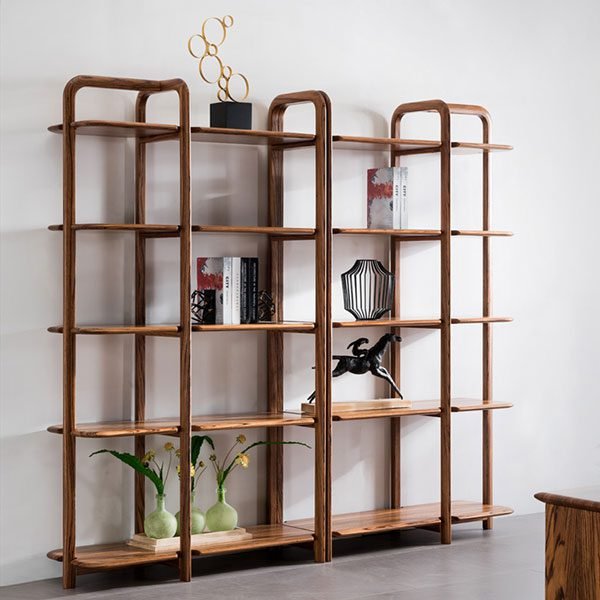“Navigating the future of sofa imports with Sofa 2025 Import Regulations in the US & EU.”
Sustainability Standards for Sofa Imports
As the global furniture market continues to expand, there is a growing focus on sustainability standards for sofa imports in both the United States and the European Union. In recent years, there has been a shift towards more environmentally friendly practices in the furniture industry, with consumers becoming increasingly conscious of the impact their purchases have on the planet. This has led to the implementation of stricter regulations and guidelines for sofa imports, aimed at promoting sustainability and reducing the carbon footprint of the industry.
In the United States, the Environmental Protection Agency (EPA) has been at the forefront of efforts to regulate the import of sofas and other furniture items. The EPA has established guidelines for manufacturers and importers to ensure that their products meet certain environmental standards. This includes restrictions on the use of harmful chemicals and materials, as well as requirements for sustainable sourcing and production practices. In addition, the EPA has also introduced labeling requirements for imported sofas, allowing consumers to easily identify products that meet these standards.
Similarly, the European Union has also implemented strict regulations for sofa imports, with a focus on promoting sustainability and reducing environmental impact. The EU has established the European Chemicals Agency (ECHA) to oversee the regulation of chemicals used in furniture production, including sofas. This includes restrictions on the use of hazardous substances, as well as requirements for proper disposal and recycling of materials. In addition, the EU has also introduced labeling requirements for imported sofas, providing consumers with information on the environmental impact of the product.
Both the US and EU regulations aim to promote sustainable practices in the furniture industry, encouraging manufacturers and importers to adopt more environmentally friendly production methods. This includes using sustainable materials, reducing waste, and minimizing energy consumption. By adhering to these regulations, companies can not only reduce their environmental impact but also appeal to a growing market of eco-conscious consumers.
In order to comply with these regulations, manufacturers and importers must carefully monitor their supply chains and production processes. This includes ensuring that materials are sourced from sustainable and ethical suppliers, as well as implementing measures to reduce waste and energy consumption. Companies must also keep detailed records of their production practices and materials used, in order to demonstrate compliance with the regulations.
While these regulations may present challenges for some manufacturers and importers, they also offer opportunities for innovation and growth. By investing in sustainable practices, companies can differentiate themselves in the market and appeal to a growing segment of environmentally conscious consumers. This can lead to increased sales and brand loyalty, as well as a positive impact on the environment.
In conclusion, the regulations for sofa imports in the US and EU are an important step towards promoting sustainability in the furniture industry. By adhering to these regulations, manufacturers and importers can reduce their environmental impact and appeal to a growing market of eco-conscious consumers. While compliance may require investment and effort, the long-term benefits are clear – a healthier planet and a more sustainable future for the furniture industry.
Tariffs and Duties on Sofa Imports
Sofas are a staple piece of furniture in many homes around the world. Whether you’re looking for a cozy spot to relax after a long day or a stylish piece to tie your living room together, a sofa can be a versatile and functional addition to any space. However, if you’re in the market for a new sofa and considering importing one from overseas, it’s important to be aware of the regulations and tariffs that may apply.
In both the United States and the European Union, there are regulations in place that govern the importation of goods, including sofas. These regulations are designed to ensure that imported products meet certain standards of quality, safety, and environmental sustainability. Additionally, tariffs and duties may be imposed on imported goods to protect domestic industries and generate revenue for the government.
When importing a sofa into the United States, you will need to be aware of the tariffs and duties that may apply. The US Customs and Border Protection agency is responsible for enforcing these regulations and collecting any applicable fees. The tariff rate on imported sofas can vary depending on the country of origin and the materials used in the manufacturing process. It’s important to research the specific tariff rates for the country you are importing from to avoid any surprises when your sofa arrives at the border.
In the European Union, the regulations governing the importation of sofas are similar to those in the United States. The EU has a common customs tariff that applies to all member states, but individual countries may also impose additional duties on certain goods. When importing a sofa into the EU, you will need to be aware of both the common tariff rates and any country-specific duties that may apply.
One way to potentially reduce the impact of tariffs and duties on imported sofas is to look for products that qualify for preferential treatment under free trade agreements. The United States has free trade agreements with several countries, including Canada, Mexico, and South Korea, that may allow for reduced or eliminated tariffs on certain goods. Similarly, the European Union has free trade agreements with countries such as Japan, South Korea, and Canada that may offer preferential treatment for imported sofas.
In addition to tariffs and duties, there are other regulations that may apply to imported sofas in both the US and EU. For example, imported sofas must meet certain safety standards to ensure that they do not pose a risk to consumers. In the United States, the Consumer Product Safety Commission is responsible for enforcing these standards, while in the EU, the European Commission sets regulations for product safety.
Overall, importing a sofa into the United States or the European Union can be a complex process that requires careful attention to detail. By understanding the regulations and tariffs that may apply, you can ensure a smooth and successful importation process. Whether you’re looking for a sleek modern sofa from Italy or a cozy sectional from Canada, being aware of the rules and fees involved in importing sofas can help you make informed decisions and avoid any potential pitfalls.
Compliance with Safety Regulations for Sofa Imports
Sofas are a staple piece of furniture in many homes, providing comfort and style to living spaces. As the demand for sofas continues to grow, so does the need for regulations to ensure the safety and quality of imported sofas. In the US and EU, there are specific regulations in place that govern the importation of sofas to protect consumers from potential hazards.
In the US, the Consumer Product Safety Commission (CPSC) is responsible for regulating the safety of consumer products, including sofas. The CPSC has established regulations that govern the flammability of upholstered furniture, including sofas. Upholstered furniture must meet specific flammability standards to reduce the risk of fires caused by ignition from a small open flame, such as a cigarette.
To comply with US regulations, sofa manufacturers must ensure that their products meet the flammability standards set by the CPSC. This may involve using flame-retardant materials or treatments to reduce the risk of ignition. Additionally, manufacturers must provide labeling on their sofas to indicate compliance with the CPSC regulations.
In the EU, the European Union has established regulations under the General Product Safety Directive that govern the safety of consumer products, including sofas. The EU has specific requirements for the flammability of upholstered furniture, similar to those in the US. Upholstered furniture must meet certain flammability standards to reduce the risk of fires caused by ignition from a small open flame.
To comply with EU regulations, sofa manufacturers must ensure that their products meet the flammability standards set by the EU. This may involve using flame-retardant materials or treatments to reduce the risk of ignition. Additionally, manufacturers must provide labeling on their sofas to indicate compliance with the EU regulations.
Both the US and EU have strict regulations in place to ensure the safety of imported sofas. Sofa manufacturers must adhere to these regulations to protect consumers from potential hazards. Failure to comply with these regulations can result in fines, recalls, or even legal action.
It is essential for sofa importers to stay informed about the regulations governing the importation of sofas in the US and EU. By understanding and complying with these regulations, importers can ensure that their products meet the necessary safety standards and avoid potential penalties.
In conclusion, compliance with safety regulations for sofa imports is crucial to protect consumers from potential hazards. The US and EU have established regulations that govern the flammability of upholstered furniture, including sofas. Sofa manufacturers must ensure that their products meet these regulations to reduce the risk of fires caused by ignition from a small open flame. Importers must stay informed about these regulations to ensure that their products meet the necessary safety standards and avoid potential penalties. By adhering to these regulations, importers can help ensure the safety and quality of imported sofas for consumers in the US and EU.
Conclusion
In conclusion, the import regulations for sofas in the US and EU in 2025 are likely to focus on ensuring compliance with safety standards, environmental regulations, and fair trade practices. It is important for importers to stay informed about any changes in regulations to avoid any potential issues with importing sofas into these markets.



